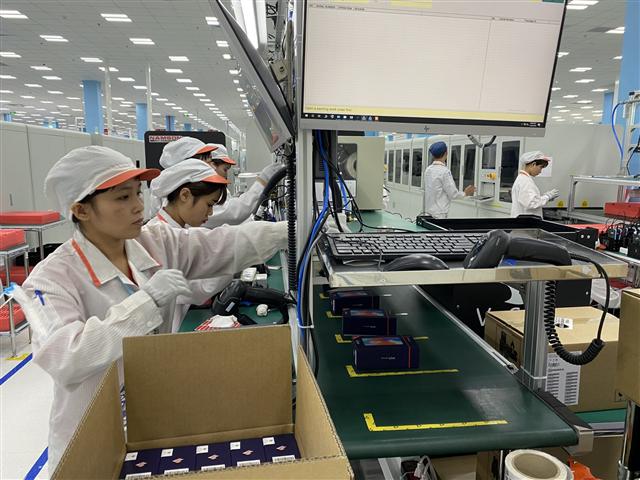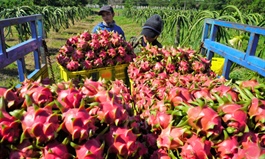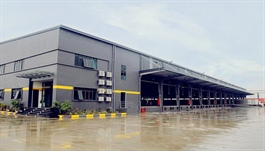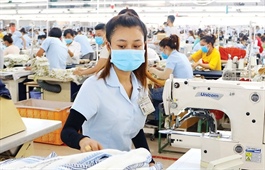Vietnam’s exports to the UK soar
Vietnam’s exports to the UK soar
Vietnam’s exports have created breakthroughs to the UK market in the initial months of the year following implementation of the UK-Vietnam Free Trade Agreement (UKVFTA).
|
Impressive growth
According to the Ministry of Industry and Trade’s European-American Market Department, export-import turnover between Vietnam and the UK reached US$657.35 million in January, an increase of 78.57 percent compared to a year ago. Of which, Vietnam exported to the UK about US$598.07 million worth of goods, an increase of 84.61 percent from the same month last year and 56.51 percent from December 2020. This growth amid an ongoing Covid-19 pandemic reflects the promise of the UKVFTA, which came into effect on December 31, 2020.
Exports of agricultural products maintained stable growth in January, with export revenue of seafood increasing 18.1 percent to US$19.72 million, and fruit and vegetables rising 148.6 percent to US$1.04 million. Vietnam’s manufacturing and processing sector saw impressive growth in exports to the UK, with phones and components up 371.6 percent to US$252.59 million; machines, equipment and spare parts up 109.9 percent to US$74.58 million; computers and components up 91 percent to US$31.82 million.
Vietnam spent US$59.297 million on imports from the UK in January, a year-on-year increase of 34.3 percent. As a result, Vietnam posted a trade surplus of US$538.773 million with the UK in January, an increase of 113.7 percent compared to a year ago.
Opportunities and challenges
In addition to opportunities to promote exports, the trade deal also poses challenges for Vietnam.
Commitments to opening the market for UK goods and services will create certain competitive pressure on the Vietnamese economy, especially in sectors where the UK has advantages. In addition, raw materials for production of Vietnam’s garments and textiles are mainly imported from China and ASEAN countries. Although the trade deal facilitates supply expansion, the Ministry of Industry and Trade still recommends that businesses switch to other sources to take advantage of opportunities.
In addition, most of Vietnam’s agricultural products, such as tea and vegetables, still face difficulties due to lack of uniformity in each shipment, poor harvests and preservation.
To realize the benefits and overcome the challenges, Vietnamese businesses, especially small- and medium-sized enterprises, need to be active in seeking market information and solutions to improve product quality and design.
The Ministry of Industry and Trade will develop a comprehensive action program focusing on information provision for relevant agencies and businesses; build a plan to guide the implementation of the UKVFTA in keeping with the signed commitments; and strengthen information dissemination about the trade pact.
| With the assistance of the World Bank, the Ministry of Industry and Trade has launched a portal to provide information on the free trade agreements to which Vietnam is a signatory. The website is now online at http://fta.moit.gov.vn. |



























